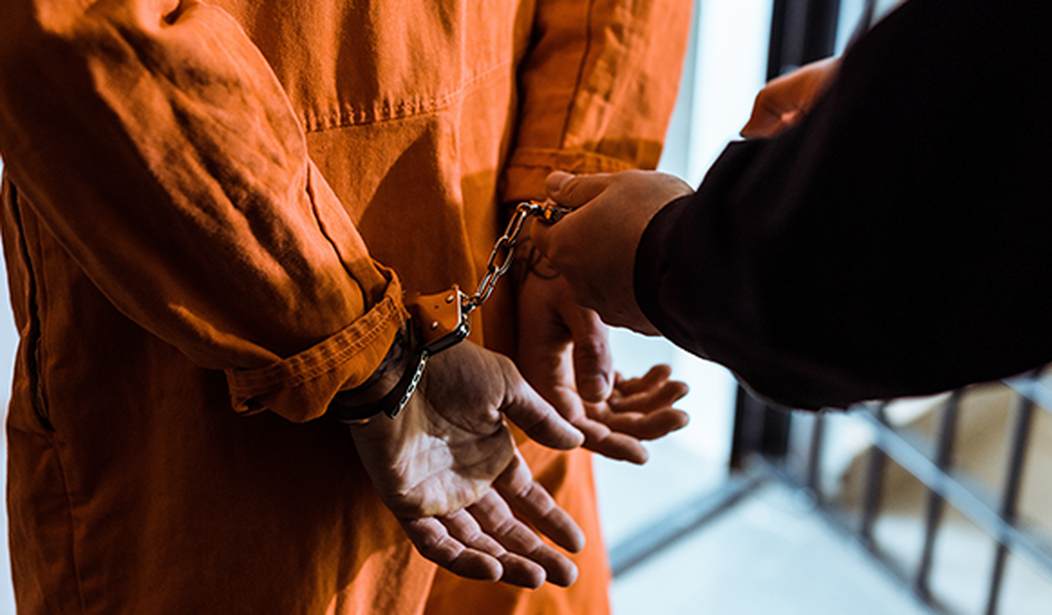Please sit down before reading the rest of this sentence: locking up criminals reduces crime.
Forgive the snark — I'm not at all making fun of City Journal's Tal Fortgang or James Q. Wilson's Thinking About Crime, which remains instructive after five decades — and forms the backbone of Fortgang's new article. I'm making fun of the fact that our friends on the Left must be constantly reminded of this basic truth.
"Violent crime is overwhelmingly the work of a small group of repeat offenders," Fortgang reported, "that is, it is highly concentrated." But even I was shocked by just how concentrated it really is.
In New York City in 2022, just 327 people accounted for a third of all shoplifting, with more than 6,000 arrests between them. In Oakland, 0.1% of the population — that's 400 people — committed a majority of the city's homicides in recent years. "In 2014, data showed that three-quarters of state prisoners...had at least five prior arrests," Fortgang wrote. "Nearly 5 percent had 31 or more, a larger share than those imprisoned after just a single arrest. "
Fortgang concluded that "The case for an incapacitation-first approach to crime control follows directly from these indisputable facts."
While Fortgang's numbers ought to serve as a real wake-up call for Democrat governors, mayors, and district attorneys (but they won't), they only tell part of the story.
For that, let's go to another decades-old book, William Rees-Mogg and James Dale Davidson's The Sovereign Individual, originally published in 1997. The authors looked at the meta-trends of the 1990s, and projected them into the first few decades of the 21st century. They got plenty wrong, particularly about nation-states slowly losing their ability to suck wealth out of their citizens through taxation, inflation, war, and regulation.
Sigh.
But they nailed it on a couple of other things, particularly crime.
And Another Thing: Originally subtitled "How to Survive and Thrive During the Collapse of the Welfare State," the book was republished in 1999 with a new subtitle: "Mastering the Transition to the Information Age." Presumably, that was meant to goose sales during the dot-com run-up. No matter the subtitle, Rees-Mogg and Davidson got a handful of fundamental predictions correct — and that's never easy.
Violent crime, they predicted, would continue the slow but long-lasting decline that started in the mid-'90s. And except for a 2020-2023 spike — caused by bad (but likely purposeful) policy decisions related to COVID and BLM — the authors nailed it. What violent crime remained, Rees-Mogg and Davidson argued, would mostly be concentrated among the urban underclass.
That last part was an easy call, but the other part of their chapter on crime is truly fascinating. The authors argued that despite serious declines, violent crime would continue to concern people because the acts committed would become more random and more spectacular.
Which brings us to the second group of people in need of incarceration: the mentally ill.
According to research performed by Grok and double-checked by Yours Truly, psychiatric hospitalization rates have plummeted since 1963, and JFK's wildly underfunded Community Mental Health Act resulted in a radical reduction in institutional capacity. By 2025, the U.S. will have fewer than 12 public psychiatric beds per 100,000 population — down from over 300 before Kennedy and Congress shifted the responsibility for mental health care to "communities."
Then think of the killing of Iryna Zarutska in Charlotte earlier this year.
Decarlos Brown Jr. was mentally ill. Instead of being institutionalized like so many others, he was left on the streets, where his condition was exacerbated by drug abuse. A craptaculent local criminal justice system put him through an endlessly revolving door of incarceration and homelessness. It was likely only a matter of time before he murdered someone — in exactly the kind of random and spectacular way that Rees-Mogg and Davidson warned us about.
I'm not saying Brown deserves any leniency, because society cannot afford to grant him even one more moment of leniency. I am saying that 60 years ago, we dismantled a functional (if imperfect) system for dealing with the mentally ill, and replaced it with something worse than nothing.
Recommended: Endgame: Chicago
Want more of the unvarnished truth? Get exclusive columns, podcasts, and video live chats with your PJ Media VIP membership — now 60% off during our FIGHT promotion.










Join the conversation as a VIP Member